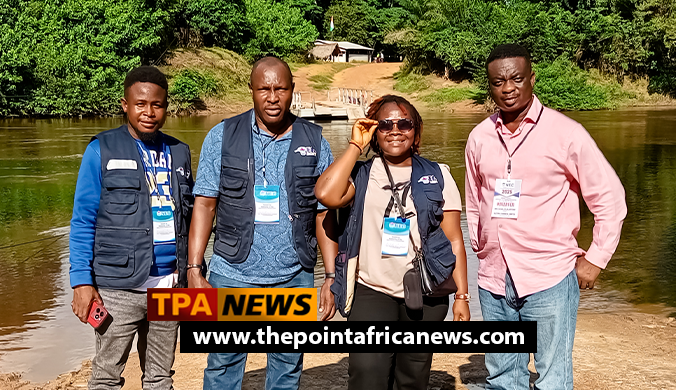By: TPA News Desk | editor@thepointafricanews.com

The United States has carried out two contentious waves of deportations to African countries—first to South Sudan in early July, and more recently to Eswatini—despite many of those deported being non-African nationals. Under a new policy upheld by the U.S. Supreme Court, administrations can deport convicted migrants to third countries with no prior ties or citizenship.
In South Sudan, eight men from countries including Cuba, Myanmar, Vietnam, and Laos were flown in earlier this month. The latest group of five—citizens of Vietnam, Jamaica, Cuba, Yemen, and Laos—arrived in Eswatini. According to statements from the U.S. Department of Homeland Security, these individuals were convicted of serious crimes, including murder, child rape, and gang involvement, and categorized as “uniquely barbaric” criminals whose home countries have refused to accept them.
Eswatini’s government has confirmed that the five men are being held in solitary confinement at undisclosed detention facilities in the country, deemed “in transit” with plans for eventual repatriation facilitated through the United Nations. No timeline has been provided. Civil society groups in Eswatini have expressed concern over the secrecy surrounding the agreement and the country’s capacity to manage individuals with serious criminal backgrounds.
Legal experts and rights advocates have sharply criticized the deportation strategy. The Supreme Court’s June ruling allowed these third-country removals without requiring meaningful opportunity for the deportees to contest claims of potential torture, persecution, or inhumane treatment—heightening fears of due process violations. Four liberal justices dissented, warning that the decision could expose individuals to irreparable harm and undermine judicial checks on executive authority.
The emergence of African recipient countries has triggered debate across the continent. Analysts suggest that nations may acquiesce to U.S. proposals in exchange for diplomatic leverage, access to aid, or favorable trade terms. However, critics argue these arrangements violate international norms—including the principle of non-refoulement—and put vulnerable populations at risk







Leave a Reply